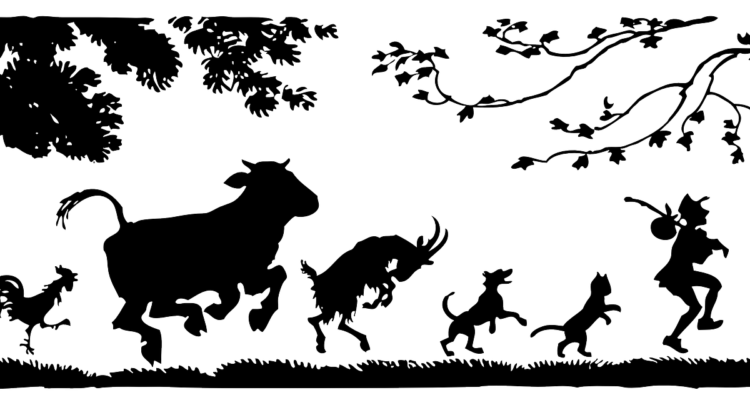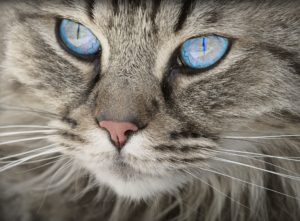
Cats, Dogs, Goats, Donkeys and other workplace species.
Okay, I’ll fess up before you even read a word of this, but that title is misleading. I don’t like donkeys, I think goats are great nyama choma (travel to East Africa to experience this) and for the braai (…or South Africa) and other species are really not important for this story, which is why they haven’t been named. Besides, I have been a dog or cat person throughout my life. So we’ll talk about cats and dogs.
The myth of “fighting like cats and dogs” is just that; a myth. It only occurs in a wild, uncontrolled environment. Where there is structure and order, you’ll find cats and dogs coexisting just fine.
Cats

Cats want your love and affection, but on their terms. They become aggressive if not nurtured and like to pungently mark their territory.
Pumas

Pumas are solitary and expertly use non-face-to-face communication, be it in order to meet their needs or as a warning sign. They are highly adaptable to environments and agile, being able to change tack in a flash. They are equally adept at killing small and large prey.
Dogs

Dogs find their identity in a pack, either as a leader or a follower. They are deeply loyal and give us much affection as they ask for. They have an affinity for work, particularly with the aim of protecting and delivering for those that they serve.
Wolves

A wolf’s personality is usually hidden within his social position, so as to be non-threatening. Wolves form bonds quickly and will exhibit all the agreeable social traits. They will initially steer clear of conflict and do everything to boost the pack. These traits persist, until either their interests are not being served or they feel threatened. They will then viciously attack, with the support of their close allies within the pack.
Now that you’ve met the key protagonists, let’s get to the point of this story. In business, the terms “it’s a jungle out there” and “battling the politics” are true of any organisation.
You must be wondering, ‘you said you were going to talk about cats and dogs, so what do pumas and wolves have to do with all this?’
So, you start your first day of work with a company, entering unfamiliar territory and your stomach feeling like you keep hitting air pockets, like it’s the first day of school. You meet different people and as they welcome you and you get to assess them at face value. You judge them one by one; ‘she’s a dog’…’he’s a cat’. Either of these corporate animals can be welcoming in their own way. They will each appear to make you feel at home, as easily as the archetypal house cat or in-home dog.
In the morning you’ve got this Account Manager who’ll pull you to her side and tell you all the company stories; where the skeletons are buried; who’s good and who’s bad. She seems to forever be by the water cooler or in at someone else’s desk; just not hers – she’s a cat! As long as you become part of her camp, if you are her peer; or she part of yours, if you’re her senior, you have nothing fear and the cat will continue to seek your appreciation and closeness, and make you welcome.
As you break for lunch, you meet the team leader who breaks open his lunch box next to you. He shares his stories of family and life with you, and coaxes you into opening up to him on the same. He makes you feel like a brother who’ll stand by you, show you the ropes and help you out as you settle in. He leads from the front, never shirks a task and will help with whatever is required to help his team get the job done – he’s a dog! He’s not a team leader for nothing, but he needs to set the pace or else he feels his natural place and his very existence in the company is threatened.
As time passes and you settle into the company, you are a great talent, you excel and are considered a high achiever. The sky is the limit and you are destined for great things. The cats and dogs are both courting you to settle in with either of, if not both, their camps. This has now become what at face value may be simply settling within your comfortable space in the company, but is really a potentially treacherous chess match, depending on your own affinity for cats or dogs. As long as they continue to identify with you, you coast along on your own trajectory, until such time as you are confronted by a choice that puts you at odds with their nature as cats and/or dogs.
What happens is that when in your ascendency you draw away from that Account Manager’s cat-like ways, she’ll suddenly turn into a puma and spin around with agility and ferocity, turning you into the enemy! What do you do?
The team leader, by the same token, may insist on you acquiescing to his leadership of the pack, yet you yourself are an alpha. You are now a threat and he turns into the leader of the wolfpack, mobilising his allies into attack against the threat that you are. What do you do, what do you do?
They key is to be human and use the core human attributes that neutralise these challenges and bring them back around you. But we’ll get to that in a moment.
Foxes
Foxes have a repu tation for being cunning tricksters. I guess I misled you to think that we weren’t going to talk about foxes today – such is the influence of the fox. They are inconspicuous and compensate for their lack of brute strength with subtlety and cunning. They use these attributes to “outfox” (do not pardon the pun) those who tend to show their hand with aggression and brute strength.
tation for being cunning tricksters. I guess I misled you to think that we weren’t going to talk about foxes today – such is the influence of the fox. They are inconspicuous and compensate for their lack of brute strength with subtlety and cunning. They use these attributes to “outfox” (do not pardon the pun) those who tend to show their hand with aggression and brute strength.
While you are busy trying to save your skin from the cats and the dogs – by now they’ve formed an alliance of common interest against a common prey – the inconspicious HR Manager approaches you and you embrace them as a potential saviour and ally. Little do you know that this colourless, unassuming, unobstrustive person who’s usually hidden away in their back office most of the time, has some serious ambition. Their success is driven on support from the bases with the most grassroots and vertical power, so they are continually playing both sides. Their modus operandi is to become your confidante and use you to get ahead, if possible; either by supporting you, or throwing you to the wolves and pumas as an offering.
The Human – Be the Pied Piper

The key to not just simply survive, but to thrive and succeed, is to acquire and nurture the skills of a pied piper. Drawing from the attributes outlined by the 6 sigma organisation’s writings in this area, these qualities include:
- Charisma: Lead the dogs and wolves.
- Believability: Lead the tame and wild cats.
- The ability to inspire loyalty: Lead them all.
- The ability to positively make use of channels of influence within the organization: Outfox the foxes.
- Top communication skills: Counteract the puma strength, lead the wolves and smoke out the foxes.
- Skills in turning around dissenters and enlisting pioneers: Be the piper.
Follow on:




